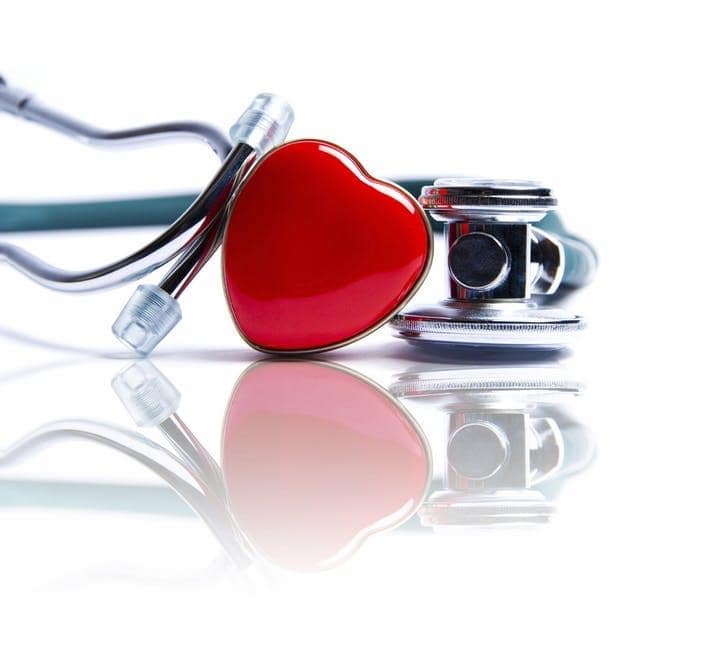High blood pressure, or hypertension, is a serious health problem that affects people of all ages, races, and genders.
If you’ve received a hypertension diagnosis, it’s important to understand the best method of treatment to keep your blood pressure at a healthy level.
Read on to learn more about living with high blood pressure and what your options are so you can stay on track for long, healthy life.

Getting a Hypertension Diagnosis
You may have high blood pressure for several reasons, so a single reading is not necessarily an indication of an official hypertension diagnosis. When your doctor checks your blood pressure, they’ll take a look at the systolic and diastolic pressure.
The first number is the systolic reading which is measured whenever your heartbeats. The second number is called the diastolic number measures the pressure in your arteries in between beats. These two numbers together will produce your official blood pressure reading.
There are four general categories of blood pressure measurements that range from normal all the way to stages one and two hypertension. Stage one hypertension is not as severe as stage two, however, both are cause for alarm.
Your blood pressure reading becomes even more important after the age of 50. People older than 65 tend to have higher blood pressure. They may need to have theirs measured much more often than someone who’s younger.
Ideally, your doctor should read the blood pressure in both arms. This can help identify any changes or variations that could raise a red flag. Two to three separate readings should be taken before confirming that there is cause for concern.
If the readings continue to be high and they’re also high both arms, you may receive a hypertension diagnosis. Other tests such as a urinalysis, an echocardiogram, and a cholesterol test may be ordered.
Making Lifestyle Changes to Treat Hypertension
If you’re diagnosed with high blood pressure, there are a few simple lifestyle changes you can make that can help you maintain healthier levels. These changes can go a long way toward keeping your high blood pressure under control.
Try to eat a healthy diet with less salt, and focus on foods high in fiber as well as fruits and vegetables. Combine that with regular physical exercise that you should do for at least 20 minutes, three days per week.
Do your best to keep your weight in check and get your current weight to a healthier level if you’re overweight. Even a loss of a few pounds can decrease your blood pressure levels.
You should also limit your alcohol consumption and if you’re a smoker, it’s time to quit. Smoking is a major contributor to hypertension and heart disease.
Other Treatment Options
Diet, exercise, and other lifestyle changes aren’t the only options when it comes to treating hypertension. You can look into alternative options like chiropractic hypertension treatments as well as acupuncture and meditation.
If you lose weight, exercise, and eat a healthy diet but your blood pressure readings are still high, your doctor may recommend medication. Using medication can lower your systolic blood pressure, keeping your levels in check.
There are several categories of medication used to treat hypertension, so your doctor will need to determine which one will work best for you. Factors such as age and gender can play a role in what type of medicine you’ll receive.
With a whole host of options available, it’s important that you get an individualized plan when it comes to hypertension medication. Not all medicine will work for everyone, and side effects can vary greatly between types and brands.
When you combine the medication with your new lifestyle changes, you should start to see your blood pressure lower. Do your best to minimize stress and try to practice some deep breathing and meditation.
Stress can cause your blood pressure to rise naturally, so it’s important to learn how to manage it the best you can. Practice slow, deep breathing that will help you relax and make your heart begins to beat at a slower rhythm.
Tips to Manage Hypertension
Even with a combination of regular doctor visits, medication, and healthy changes, it can be difficult for some people to keep their blood pressure under control. This is a condition that should be checked frequently and managed for a lifetime.
Make sure you’re taking all of your prescribed medications as directed, and don’t miss a dose. If you encounter any side effects, let your doctor know so they can look into changing medicines.
See your doctor on a regular basis and develop a relationship with them. Purchase an at-home blood pressure monitor and take readings every day. Record the readings in a notebook and bring it with you to your doctor visits.
When you adopt healthier habits and learn to manage stress, your hypertension should be under control. Pay close attention to how you’re feeling, and keep a journal documenting any changes so your doctor will be aware. When you combine these treatment options, it’s much easier to keep your high blood pressure at bay.
Hope for Hypertension
Don’t let a hypertension diagnosis get in the way of your happy and healthy life. Follow these treatment options and talk to a healthcare professional who can assess your unique situation.
With a combination of medication, a healthy diet, and exercise, you should be able to manage high blood pressure much more efficiently.
Check out our website for a wide variety of articles dedicated to health, lifestyle, travel, and a whole lot more.
Also Read- How Can Stress cause Hormonal Imbalance?










